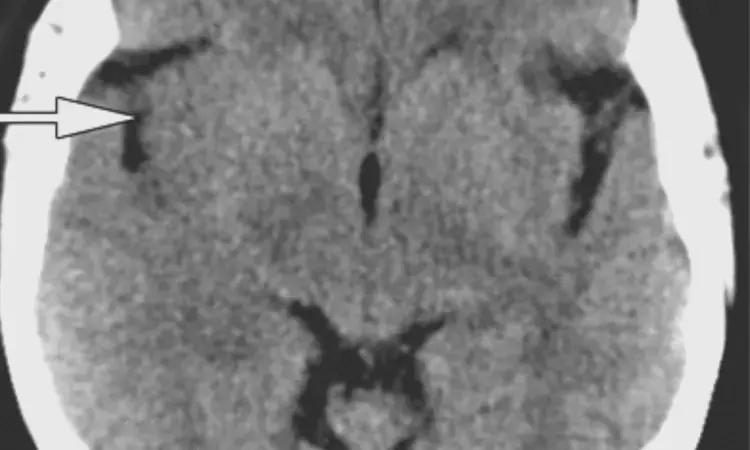TyG Index Significantly Associated With Stroke Recurrence And High Mortality
- byDoctor News Daily Team
- 02 July, 2025
- 0 Comments
- 0 Mins

China: Researchers from China found that a high triglyceride and glucose (TyG) index can significantly predict adverse outcomes of stroke-like stroke recurrence and mortality and hence can be a useful tool for optimizing risk stratification in patients with ischemic stroke. The study results were published in the journal Cardiovascular Diabetology.
Strokes is an acute neurologic condition occurring due to disruption of cerebral perfusion, resulting in focal or global neurological impairment. It significantly impairs the quality of life and causes high economic and societal burdens. Literature shows that the triglyceride and glucose (TyG) index which is a biochemical marker of insulin resistance (IR) was found to have important value in the prediction of strokes, especially ischemic stroke (IS). Hence researchers from China, conducted a study to investigate the relationship between the TyG index and IS and ascertain whether the TyG index is independently associated with IS adverse outcomes.
Also Read: How to reduce risk of stomach bleeding occasionally caused by regular aspirin use?
Using keywords like the ‘‘TyG index’’ and "stroke", various databases like Cochrane, Embase, Medline, Web of Science, PubMed, and other relevant English databases and related websites were systematically searched for articles from inception to April 4, 2022. Researchers reviewed the available literature on the TyG index and its relation to predicting IS occurrence in the general population and adverse clinical outcomes. The odds ratios (OR) of the TyG index and its predictability of IS occurrence and adverse outcomes were calculated. Meta Package in STATA, version 12.0. was used for statistical analyses.
Key findings:
A total of 18 studies and 5,92,635 patients were included in the analysis.
From the total sample of 554,334 cases with a high level of heterogeneity, a higher TyG index was associated with increased risk of IS in the general population as per the pooled effect values of all strokes.
When compared to IS patients with a lower TyG index, those with a higher TyG index showed a higher risk of stroke recurrence (OR: 1.50) and increased risk of mortality (OR 1.40).
There was no correlation in the effect value combinations of poor functional outcomes (OR 1.12) and neurological worsening (OR: 1.76) in a total sample of 38,301 cases with a high level of heterogeneity.
Also Read: Frequent antibiotics use may increase inflammatory bowel disease risk in 40 plus population: Study
Thus, this is the first systematic review and meta-analysis to find a positive association between the TyG index with IS risk in the general population.
Further reading: Yang, Y., Huang, X., Wang, Y. et al. The impact of triglyceride-glucose index on ischemic stroke: a systematic review and meta-analysis. Cardiovasc Diabetol 22, 2 (2023). https://doi.org/10.1186/s12933-022-01732-0
Disclaimer: This website is designed for healthcare professionals and serves solely for informational purposes.
The content provided should not be interpreted as medical advice, diagnosis, treatment recommendations, prescriptions, or endorsements of specific medical practices. It is not a replacement for professional medical consultation or the expertise of a licensed healthcare provider.
Given the ever-evolving nature of medical science, we strive to keep our information accurate and up to date. However, we do not guarantee the completeness or accuracy of the content.
If you come across any inconsistencies, please reach out to us at
admin@doctornewsdaily.com.
We do not support or endorse medical opinions, treatments, or recommendations that contradict the advice of qualified healthcare professionals.
By using this website, you agree to our
Terms of Use,
Privacy Policy, and
Advertisement Policy.
For further details, please review our
Full Disclaimer.
Recent News
Pfizer files lawsuit against Metsera, its Director...
- 02 November, 2025
Health Ministry achieves 3 Guinness World Records...
- 02 November, 2025
Roche gets CE mark for Elecsys Dengue Ag test to d...
- 02 November, 2025
Daily Newsletter
Get all the top stories from Blogs to keep track.


0 Comments
Post a comment
No comments yet. Be the first to comment!